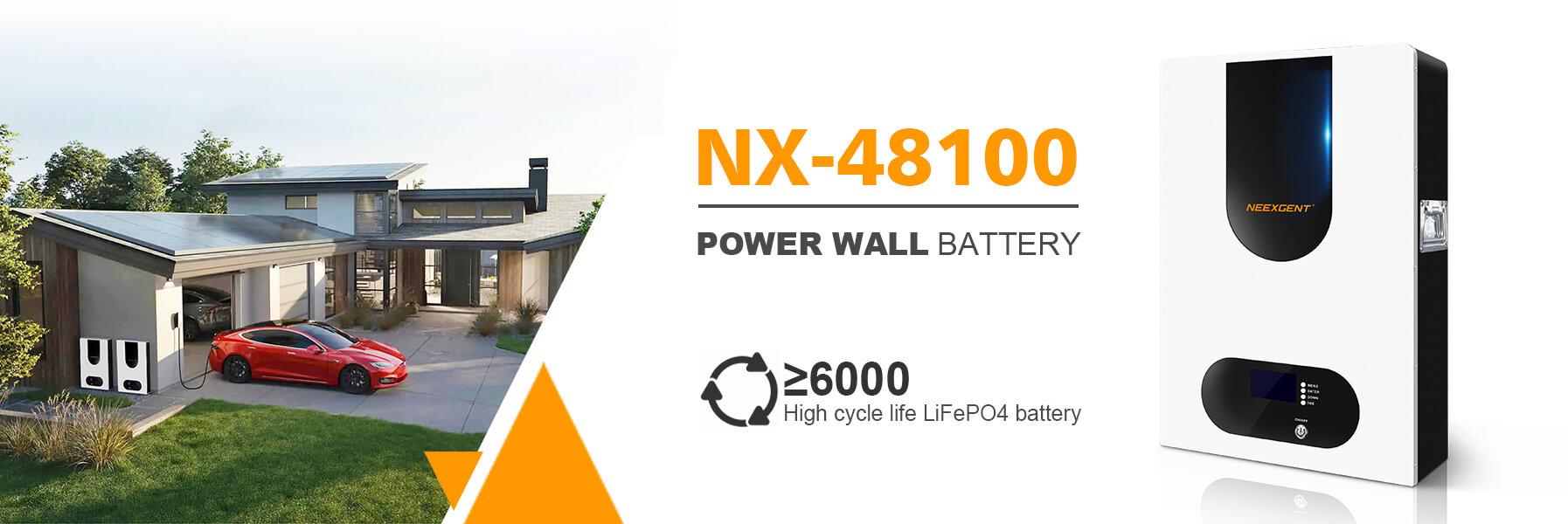A powerwall battery is a rechargeable lithium-ion battery that is designed to store energy from solar panels, wind turbines, or the grid. It is a popular choice for homeowners who want to save on their electricity bills and reduce their carbon footprint. However, like any electronic device, a powerwall battery can develop problems over time. In this essay, we will discuss how to tell if you have a problem with your powerwall battery.

NX-48100 Powerwall Battery
Before we delve into the signs of a faulty powerwall battery, let us first understand how it works. A powerwall battery is connected to your home's electrical system and stores energy from your solar panels or the grid during off-peak hours when electricity is cheaper. It then uses this stored energy to power your home during peak hours when electricity is more expensive. In other words, a powerwall battery helps you save money on your electricity bills by reducing your reliance on the grid.

One of the most common signs of a problem with your powerwall battery is a reduced battery life. If your powerwall battery is not holding a charge for as long as it used to, it may be time to check for problems. Typically, a powerwall battery should last for around 10 years. However, if you notice a significant reduction in battery life before this time frame, it could be due to a faulty battery or a problem with the charging system.

Another sign of a faulty powerwall battery is rapid discharge. If your powerwall battery is discharging quickly, it may be due to a problem with the battery's cells. The cells in a lithium-ion battery can degrade over time, which can lead to a reduction in the battery's capacity. Additionally, rapid discharge can also be caused by a problem with the battery management system.

Overheating is a serious problem with lithium-ion batteries, and powerwall batteries are no exception. If your powerwall battery is overheating, it could be due to a problem with the battery's cooling system. The cooling system is responsible for dissipating heat from the battery, and if it is not working correctly, the battery can overheat and become damaged.

If you hear strange noises coming from your powerwall battery, it could be a sign of a problem. Typically, powerwall batteries should operate quietly, and any unusual sounds could indicate a problem with the battery's internal components. For instance, a clicking or popping noise could indicate a problem with the battery's cells, while a humming noise could indicate a problem with the battery's fan.

Modern powerwall batteries are equipped with diagnostic systems that can detect problems and generate error codes. If you notice an error code on your powerwall battery, it is essential to refer to the manufacturer's manual to determine what the code means. The error code could indicate a problem with the battery's cells, the battery management system, or the charging system.

If you notice a significant reduction in the performance of your powerwall battery, it could be due to a problem with the battery's internal components. A reduction in performance could manifest as a reduction in the battery's capacity, a slower charging time, or a shorter lifespan. If you notice any of these signs, it is essential to have your powerwall battery checked by a professional.












